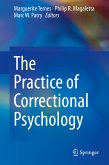This first volume of an exciting annual series presents important new developments in the psychology behind issues in the law and its applications. Psychological theory is used to explore why many current legal policies and procedures can be ineffective or counterproductive, with special emphasis on new findings on how witnesses, jurors, and suspects may be influenced, sometimes leading to injustice. Expert scholars make recommendations for improvements, suggesting both future directions for research inquiries on topics and needed policy changes. Topics included in this initial offering have rarely been considered in such an in-depth fashion or are in need of serious re-thinking:
- Interrogation of minority suspects: pathways to true and false confessions.
- A comprehensive evaluation of showups.
- The weapon focus effect for person identifications and descriptions.
- The psychology of criminal jury instructions.
- Structuredrisk assessment and legal decision making.
- Children's participation in legal proceedings: stress, coping, and consequences.
- Sex offender policy and prevention.
- The psychology of tort law.
Demonstrating the scope and rigor that will characterize the series, Volume 1 of Advances in Psychology and Law will interest psychology and legal experts as well as practicing psychologists, and will inspire fresh thinking as the two fields continue to interact.
Dieser Download kann aus rechtlichen Gründen nur mit Rechnungsadresse in A, B, BG, CY, CZ, D, DK, EW, E, FIN, F, GR, HR, H, IRL, I, LT, L, LR, M, NL, PL, P, R, S, SLO, SK ausgeliefert werden.









